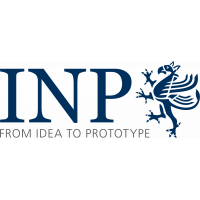The dataset contains results of a unified one-dimensional model of an arc plasma in air dominated by copper metal vapour. The plasma is generated between copper electrodes. The model resembles the microarcs that occur at low-voltage and low-current conditions in switching devices during a contact separation. Data concerning the plasma parameters, including electric potential, temperatures of electron and heavy particles, number densities of charged and neutral species are provided as tables.
| Field | Value |
|---|---|
| Group | |
| Authors | |
| Release Date | 2024-10-07 |
| Identifier | 79d57267-7e4a-4734-9b5a-7969617649b8 |
| Permanent Identifier (DOI) | |
| Permanent Identifier (URI) | |
| Is supplementing | |
| Plasma Source Name | |
| Plasma Source Application | |
| Plasma Source Specification | |
| Plasma Source Properties | DC electric arc between copper electrodes of 10 mm length in atmospheric-pressure air dominated by copper metal vapour. Inter-electrode distances of 30 µm and 300 µm are investigated at a constant current of 1 A. |
| Plasma Medium Name | |
| Plasma Medium Properties | Air plasma dominated by Cu metal vapour. Evaporation from the electrodes is taken into account. The plasma chemistry involves 13 species (e, N2, O2, NO, N, O, N2+, O2+, NO+, N+, O+, Cu nad Cu+). It is assumed that the plasma behaves like a fluid, in which the heavy particles (neutrals and ions) are in thermal equilibrium at a common temperature T, while the electrons are characterized by a Maxwellian velocity distribution function with a temperature Te. |
| Plasma Diagnostics Name | |
| Plasma Diagnostics Properties | The governing equations include particle balance equations for electrons as well as all considered heavy species, heat balance equations for the gas and electrode temperatures, the electron energy balance equation and Poisson's equation for the electric potential. |
| Language | English |
| License | |
| Public Access Level | Public |
| Contact Name | Margarita Baeva |
| Contact Email |
Data and Resources
- Modelling of microarcs in copper metal vapour dominated air - Fig1csv
The rate coefficients for direct ionization (Kid), step-wise ionization (Kis...
Preview Download - Modelling of microarcs in copper metal vapour dominated air - Fig2acsv
Distribution of the electric potential in the plasma region for a gap length...
Preview Download - Modelling of microarcs in copper metal vapour dominated air - Fig2bcsv
Distribution of the electric potential in the plasma region for a gap...
Preview Download - Modelling of microarcs in copper metal vapour dominated air - Fig3csv
Distribution of the electric potential in the plasma region for gap lengths...
Preview Download - Modelling of microarcs in copper metal vapour dominated air - Fig4acsv
Distributions of the electron temperature and the temperature of heavy...
Preview Download - Modelling of microarcs in copper metal vapour dominated air - Fig4bcsv
Distributions of the electron temperature and the temperature of heavy...
Preview Download - Modelling of microarcs in copper metal vapour dominated air - Fig5acsv
Distributions of the number densities of charged species in the plasma...
Preview Download - Modelling of microarcs in copper metal vapour dominated air - Fig5bcsv
Distributions of the number densities of charged species in the plasma...
Preview Download - Modelling of microarcs in copper metal vapour dominated air - Fig6acsv
Distributions of the number densities of neutral species in the plasma...
Preview Download - Modelling of microarcs in copper metal vapour dominated air - Fig6bcsv
Distributions of the number densities of neutral species in the plasma...
Preview Download

![[Open Data]](https://assets.okfn.org/images/ok_buttons/od_80x15_blue.png)